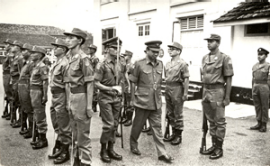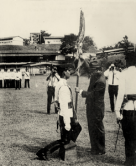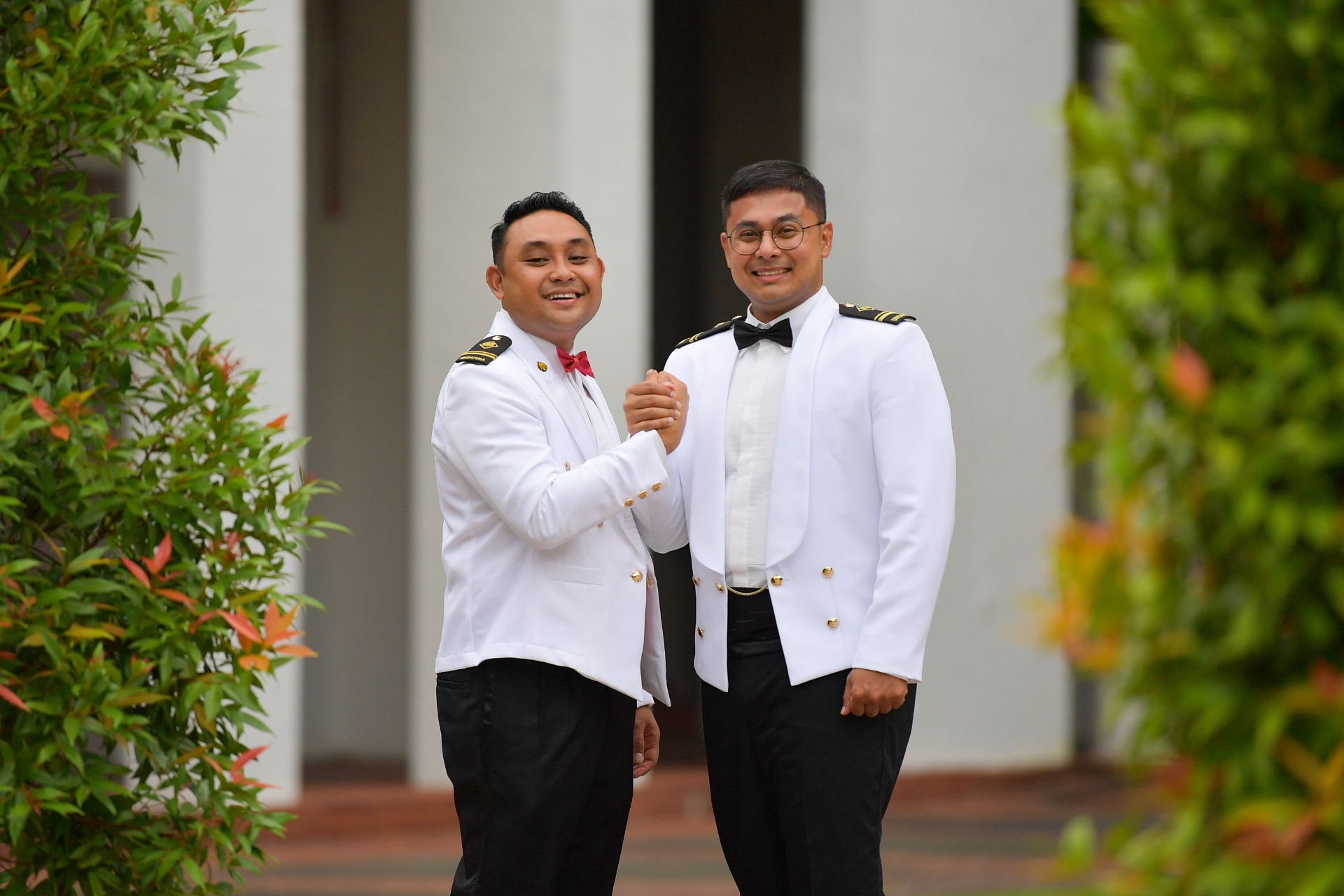PEOPLE
DR GOH KENG SWEE - SINGAPORE'S DEFENCE ARCHITECT
12 Jul 2010
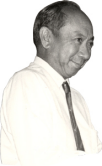
Referred to affectionately by Minister Mentor Lee Kuan Yew as his "troubleshooter", Dr Goh was a man of tough, pragmatic policies regardless whether he was in the finance, defence or education ministry. Of his 25 years in public service, 11 were spent at the defence ministry, making it arguably the one aspect of nation-building that he had the greatest influence in.
In all the policies that he spearheaded, Dr Goh's analytical mind and economist training was evident, especially in his most significant contribution to defence - National Service (NS), a rite of passage for all Singaporean men. During those early critical years, he was faced with the task of engineering a swift build-up of the Singapore Armed Forces (SAF) and despite the initial resistance towards the 1967 NS (Amendment) Bill, he pushed on as he believed this was the best way ahead given the nation's limited resources.
Dr Goh also had great foresight. He believed that in the 21st century, victory in war would depend on the laboratories of defence scientists. Knowing that it was vital for a small country like Singapore to leverage on science and technology as a force multiplier, he concluded that Singapore had to have its own defence scientists doing its own research and development and developing cutting-edge technologies.
So, in 1971, Dr Goh assembled a team of newly-graduated young engineers to work in secrecy under the codename Project Magpie. Needing a cover, they called themselved the Electronic Test Centre. Project Magpie evolved over the years into DSO National Laboratories, Singapore's foremost research and development organisation.
In fact, Dr Goh also applied his forward-looking approach to this very publication. Under Dr Goh, the defence bulletin originally known as National Pioneer was renamed PIONEER in 1971 and, at the same time, the first of several reviews was done to improve the magazine's quality. It was also redesigned as a magazine - a state which remains relevant even today.
Although Dr Goh helmed the Ministry of Interior and Defence from August 1965 to August 1967, and was reappointed as Minister for Defence from August 1970 to February 1979, he was no professional soldier.
However, he was made the first Honorary Colonel of the 20th People's Defence Force (Arty), the predecessor of the 20th Battalion, Singapore Artillery.
Gathering the top talents
In addition to establishing various key institutes such as the Singapore Armed Forces Training Institute, the SAF's pioneer school of military training, he foresaw the need to attract people of talent into the organisation.
Thus Project Wrangler, a scheme launched by Dr Goh to identify, track and groom officers of potential, was born. The prestigious SAF Overseas Scholarship (SAFOS), considered second only to the President's Scholarship, was also set up by Dr Goh to attract and groom top talent in 1971. In the same year, he founded the Junior Flying Club (the predecessor of the Singapore Youth Flying Club) to promote aviation among youths and nurture potential pilots for the Republic of Singapore Air Force.
Building a strong foundation
Through his two stints as defence minister, Dr Goh laid the foundation blocks of today's sturdy SAF, and his belief that the security of the nation rests on the shoulders of all Singaporeans, whether soldier or civilian, remains as relevant today as in the early years: "We must never forget that our existence as an independent sovereign state cannot be made to depend on the sufferance of others."
Said Dr Goh in his last major speech before retiring from politics in 1984: "The most dependable guarantee of our independence is a strong SAF. A strong SAF, in turn, depends on the political will to make the effort and pay the price."
"When I was just a young captain in 1973, I attended a seminar and went up to the rostrum and took the opposite direction of what my senior officers had been advocating. It was not a very usual thing to contradict your senior officers in front of the minister, especially in a big forum, so his reaction was a great encouragement for me. A couple of days later, I was interviewed and designated as a Wrangler. It was a tremendous motivation, and a great inspiration to know that the minister himself was looking at such matters... My life has been touched, personally and directly, by Dr Goh, and I was very motivated by his example and leadership."
- LG (Ret) Ng Jui Ping, former Chief of Defence Force
"Dr Goh was the leader and father of the SAF... His hard work has helped to ensure Singapore's security, and it's thanks to him that the SAF has grown from strength to strength."
- ME3 Johari Nahrim, Instructor, SAF Medical Training Institute
"Dr Goh was instrumental in setting up the Unmanned Aerial Vehicles (UAVs) unit way back in the 1970s when he actually brought in the first generation of UAVs, which were called remote piloting vehicles back then. It's quite incredible that someone of his stature had already thought that UAVs would transform the way we operate... When you think about it, it's amazing how he has touched every single ministry, in areas ranging from defence to nation-building, which is something that few have ever achieved."
- LTC Kevin Goh, Commanding Officer, 116 Squadron
"Dr Goh was a great man, and I've read a lot about him and what he's done for Singapore... He built up a strong defence system, and today we're enjoying the fruits of his labour."
- ME3 Harbahjan, Coxswain, Institute of Maritime Operations and Systems
"All artillery officers remember what Dr Goh said at the opening of the School of Artillery in 1967: 'The tempering of steel is a lengthy process and men of steel you must be; anything less has no place in the Singapore Artillery.' For myself, it was most memorable because our training was real tough, and we were really pushed to the limit."
- LTC (Ret) Tay Khoon Seng, former Commander of 9th Division Artillery
"Many of you have read in the papers recently, letters in the Readers' Column in which wealthy parents are complaining that they cannot send their 15-year-old sons abroad to do school education. They complain that our schools are not good enough, they say that Singapore needs more scientists and technicians, they say that they have not the slightest intention to avoid military service for their children... I have not the slightest intention of being persuaded by the spurious arguments of these writers to newspaper columns. Their sons will do the same National Service like all the others. This will do them a world of good. It will give them that moral fibre, that sense of responsibility to society, which is so markedly absent in their parents."
- in addressing engineering officer cadets during their commissioning parade at Sentosa Camp, 1970
"I consider it to be wrong to believe that there is nothing we can or should do about defending ourselves, even though we cannot achieve complete invulnerability by our unaided efforts."
- at the moving of the NS (Amendment) Bill, 1967
"The guiding principle in National Service enlistment policy should be absolutely equal and fair treatment for all persons belonging to the same category. Whether a boy is the son of the Prime Minister, or of a banker or a cobbler makes no difference to his service liability. "
- in an address to Parliament, 1970
ALSO READ IN PEOPLE
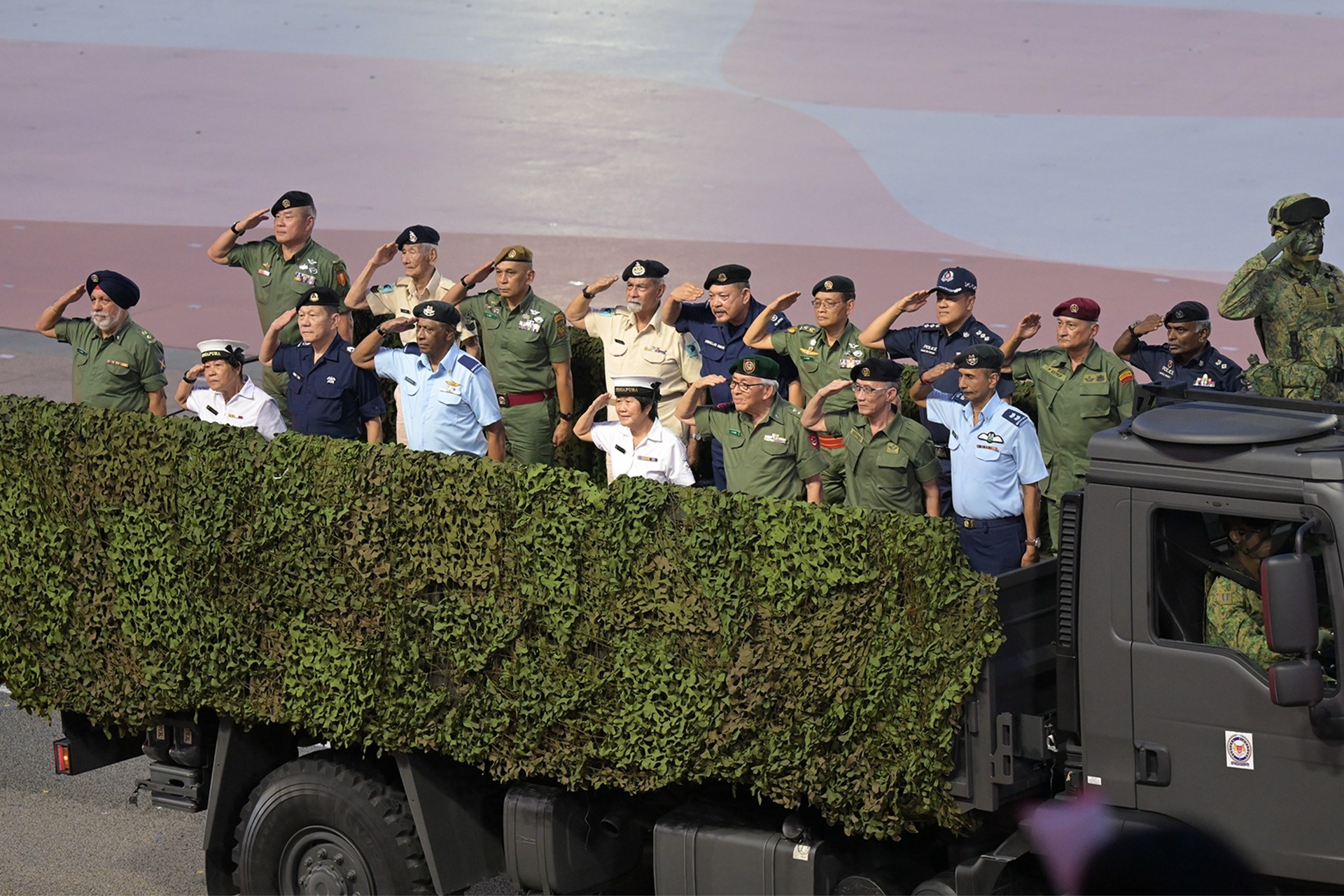
Guardians of legacy
15 Dec 2025
He helped build the RSAF’s first aircraft. She was one of the first women to join the navy. He managed communication crises in a time when a pager beep meant trouble. Meet these veterans who saw Singapore through turbulent times to build a strong SAF.
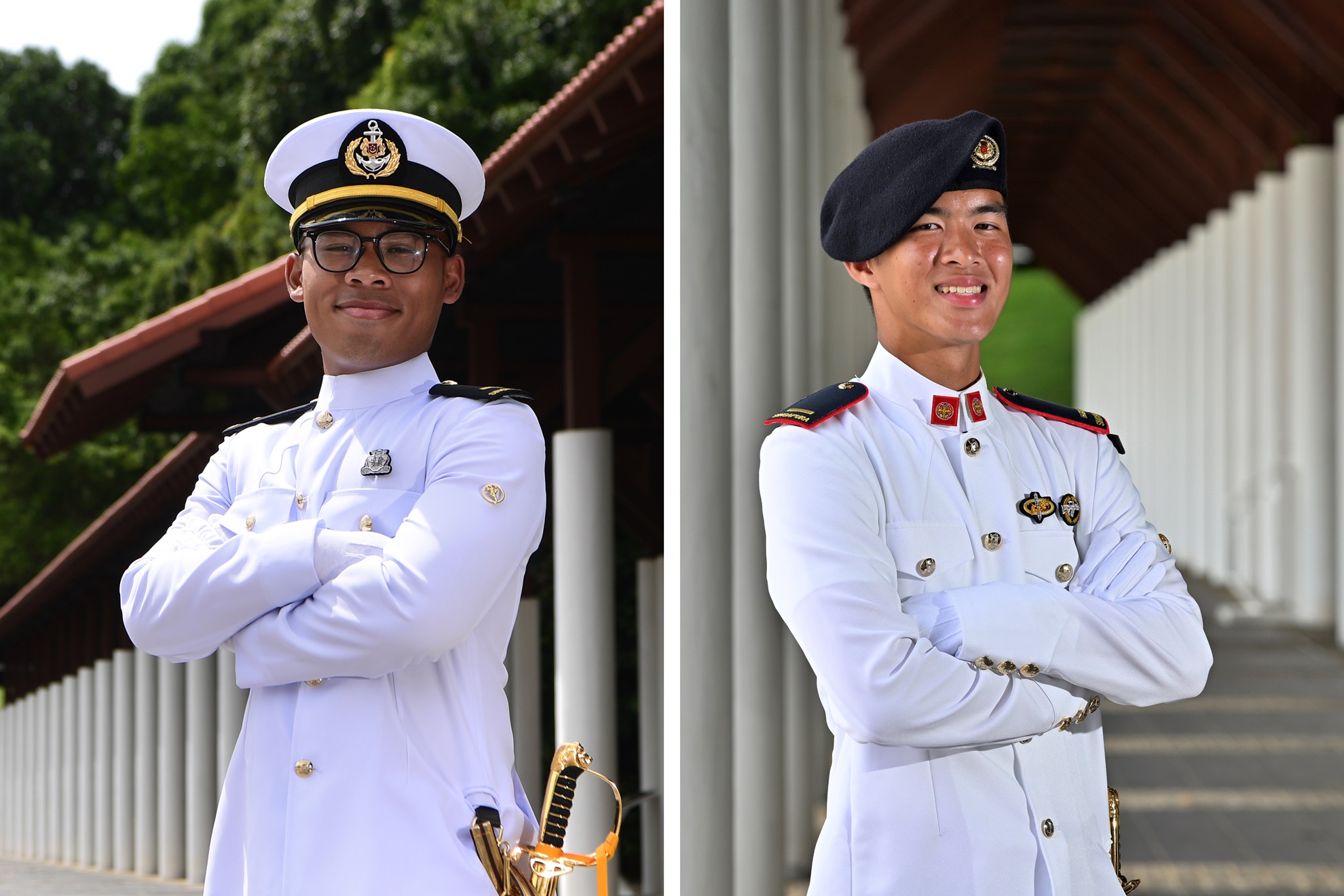
Rising above the tide & stepping forward to lead
13 Dec 2025
They’re among the SAF’s latest batch of officer graduands this year. Meet 2LT Mohamad Wira Kuriniawan and 2LT Ryan Ong, who will be heading to the Navy’s 180 Squadron and 1st Battalion, Singapore Guards respectively.
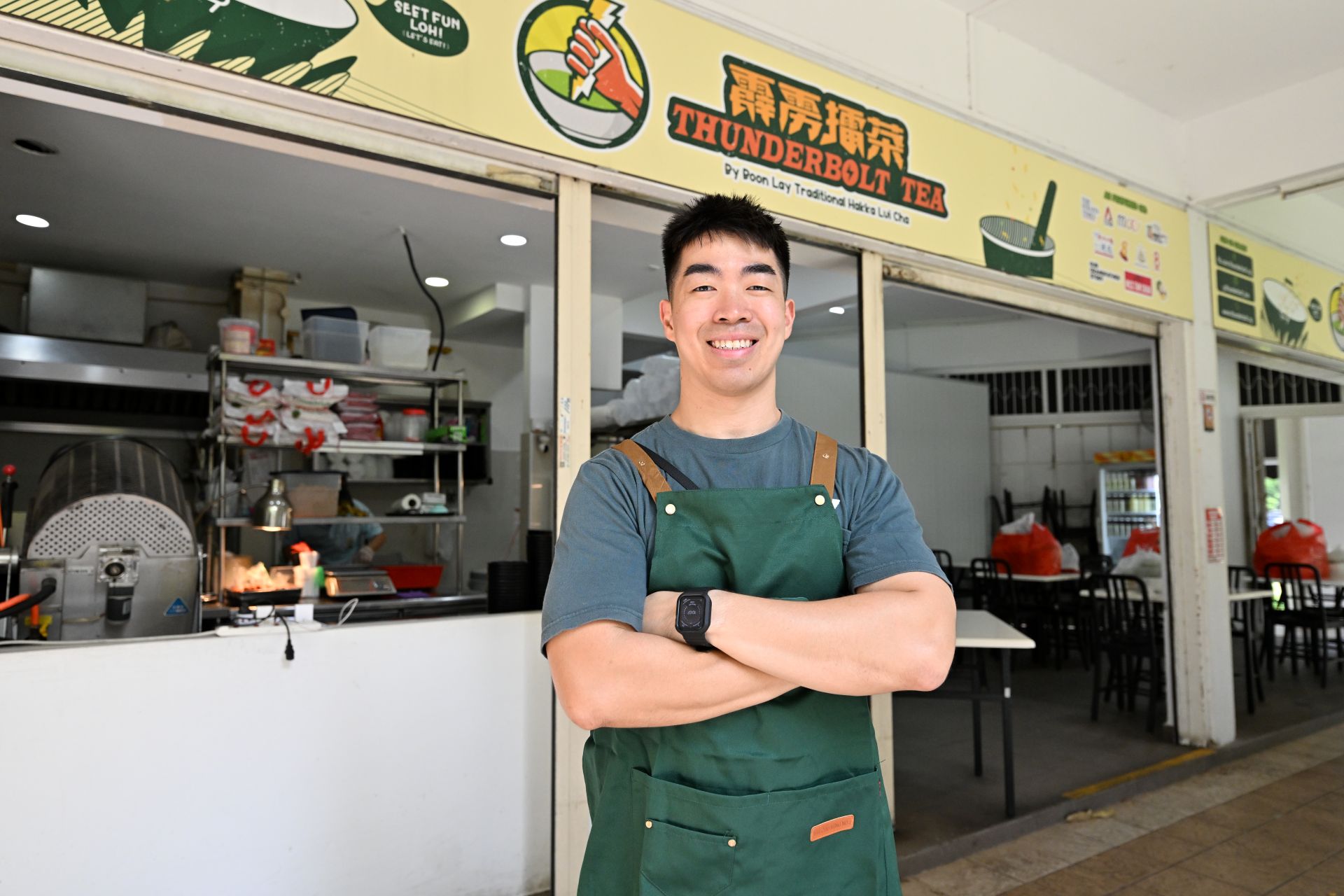
Guardian of the skies, guardian of family heritage
08 Dec 2025


